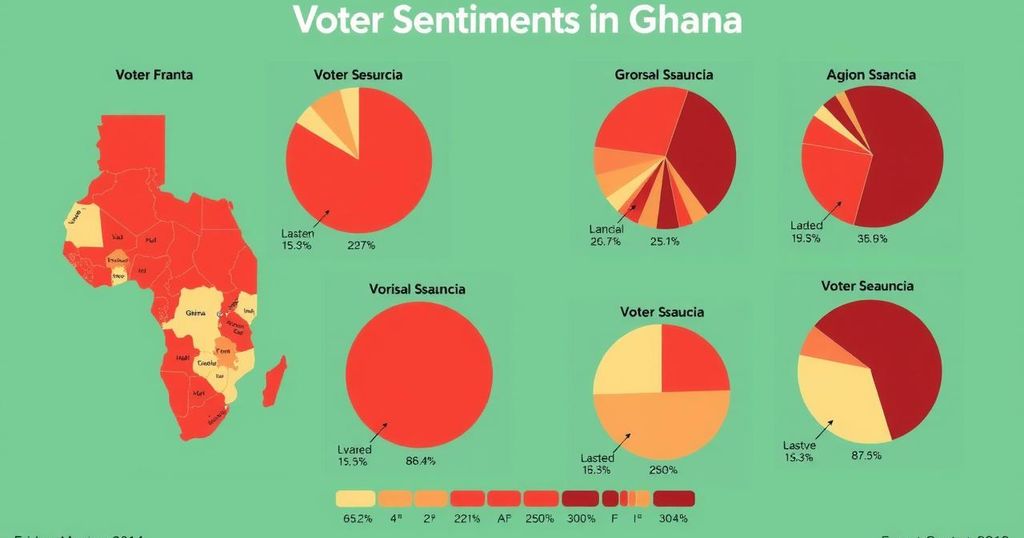Ghana’s upcoming election highlights pressing voter concerns regarding economic instability, particularly driven by high inflation, rising unemployment, and national debt. The electoral landscape is influenced by younger voters, who are disproportionately affected by these issues. Additionally, the impacts of gold mining and environmental concerns have emerged as significant topics within the political discourse. Overall, the election, scheduled for December 7, serves as a critical juncture for Ghana’s democracy and economic future.
As Ghana approaches its ninth general election, the political landscape reflects significant concerns among voters, primarily influenced by economic challenges. The country has experienced three peaceful transitions of power since the re-introduction of multiparty politics in 1992, primarily between the National Democratic Congress (NDC) and the New Patriotic Party (NPP). With inflation surging to a staggering 54.1% in late 2022, the rising costs of staple foods like eggs and tomatoes have made life increasingly difficult for many Ghanaians, leading to greater poverty levels.
Moreover, Ghana’s economic situation was exacerbated by a debt crisis, resulting in the government defaulting on payments and seeking assistance from the International Monetary Fund. The ongoing negotiations with international lenders highlight serious concerns about economic mismanagement, a claim President Nana Akufo-Addo has denied, attributing the issues to external factors. With half the population under the age of 35, the youth, particularly the demographic aged 15 to 24, struggles significantly with unemployment rates nearly double that of the overall population.
Additionally, discussions surrounding gold mining have surfaced as a critical electoral issue, with environmental concerns regarding small-scale and illegal mining operations jeopardizing the ecosystem. Gold has been a vital export, contributing $5.2 billion in 2023, along with Ghana’s substantial positions in oil, gas, cocoa, and other mineral resources. Politicians must navigate the current sentiment, recognizing that voter preferences may lean towards short-term improvements.
Ghana is widely regarded as a beacon of democracy on the African continent, where elections have historically been competitive yet peaceful. The outcome of the anticipated election, scheduled for 7 December, is expected to be known within three days, further emphasizing the importance of the current socioeconomic climate in shaping voter priorities.
The context of Ghana’s upcoming election is rooted in a notable history of multiparty democracy since 1992, characterized by stable elections and peaceful power transitions between the NDC and NPP. The current crisis is largely defined by rampant inflation, significant debt, and rising unemployment rates that disproportionately affect younger populations. With such socioeconomic challenges, voters are acutely aware of how these factors affect their everyday lives, ultimately influencing their choices at the ballot box.
In conclusion, Ghana’s electoral landscape is marked by pressing economic challenges that have significantly affected voters’ perceptions and priorities. The alarming inflation rates, rising unemployment, and mounting national debt paint a dire picture, likely driving calls for change among the electorate. As the nation prepares for the election on December 7, the focus remains on key issues affecting the populace, as voters seek candidates who can promise immediate improvements in their living standards.
Original Source: www.bbc.co.uk






